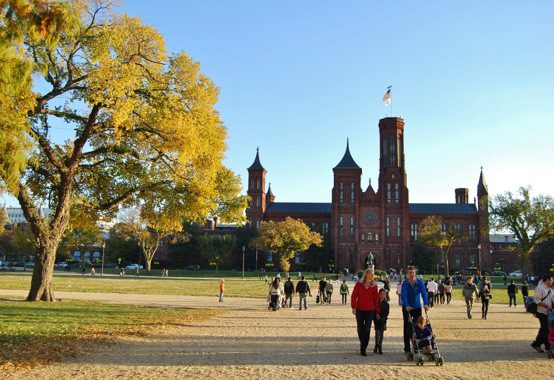Why Conservatism Cares About Cities

Should conservatives care about cities? The question cropped up yesterday as conservative urbanists took to the web to argue that Republicans need cities, and cities need Republicans. Here at TAC, Samuel Goldman followed up to acknowledge the good that conservative policies could do for American cities but, he concluded, making urban inroads would require the national Republican Party to take measures that would drive out the party’s existing core of socially conservative support. The point is well taken, and not taken often enough by those in the urban bubble.
A richer question, though, is how much conservatives should care about cities in the first place. From Babel and Babylon, after all, the city has been made a symbol of moral decay. The fast-paced ways of big city living have long been decried as the undoing of community and family alike. For traditionalist conservatives in particular, less enamored than many of their compatriots with the upheavals wrought by commercial society, is there any reason not to condemn the whole enterprise as incompatible with the proper aims of life?
Bill McClay took up these questions in an almost lyrical consideration of the city a few years back, and it’s worth revisiting to remind ourselves, beyond the stratagems and calculations, why conservatism cares about cities.
McClay finds a far deeper connection than many would expect between traditionalism and urbanism, thought to be so oft-opposed in modern life:
The very idea of conservatism itself, far from being intrinsically anti-urban, has in the West always been inextricably bound up in the history and experience of a particular succession of great cities. When Russell Kirk wrote his celebrated book on The Roots of American Order, he could have chosen to present that history strictly in terms of unfolding structures of ideas. But instead, he built it around the central cities of the history of the West: Athens, Jerusalem, Rome, London, and Philadelphia. Each city was taken to exemplify a foundational stage in the development of American liberty and American order. This was not merely a literary conceit, like a metonym. The clear message was that such developments could only occur in cities.
Not only have such developments necessarily occurred in great cities, but cities themselves can be understood as “profoundly conservative”:
We have been taught to think of our American cities as hothouses of “creative destruction” and holding pens for atomized and anonymous “mass men.” But our actual experience of cities tells us something different. For one thing, every great city is really a collection of strong neighborhoods, in each of which there is far less anomie than may appear to be the case to an outside observer. But the conservative, civilization-sustaining aspect of the city goes far beyond that….cities constitute civilization, as the very word “civilization” implies. They are its chief transmission belt. Properly understood, a city is a profoundly conservative institution, particularly if one thinks of conservatism as an outlook that urges faithfulness to memory.
Even today, when we think of our great cities as having even more dynamic, even frenzied, aspects that those that Mumford described in his epiphany, this profound cultural function of carrying forward the past is still very much present, undergirding all else. For all its constant hubbub and upheaval, a great city is much more likely to carry forward the material vestiges of the past, and the memories those vestiges hold, than is most any American suburb or small town.
McClay makes a powerful point on memory, for memory is essential to any conservatism that refuses to fall into mere reactionary reflex. We must remember and transmit what we have received from past generations to those to come, richly. McClay reveals how cities, particularly, serve this function:
Our memories are essential, but they play tricks on us, and they are full of idiosyncrasy. That is why we so profoundly need landmarks, for the tangible and visible things that we measure ourselves against, for permanence….
[T]he landmarks of cities do something different and something unique, for they serve to unite the experience of all of us. They lift us out of our idiosyncracy and individuality into a world of common experience. They are a visible token of how individual experience is woven into the larger fabric of reality itself, and as such, are not implausibly seen as an anticipation of the Kingdom of Heaven. As Burke implies, preservation is a necessary component of anticipation.… Preserving the memory of what we have lost turns out to be an essential prod to our anticipation of what is come. And both preservation and anticipation are at odds with the other way of understanding the city, as raw material in the hands of well-meaning but arrogant planners and technocrats who would wipe away every mistake of the past, and use their ingenuity to comprehensively refashion every feature of our collective lives into something new and better. Against this impulse, we should be on our guard.
Outside of our office at the moment are clumps of frozen tourists and schoolchildren, weaving their away around fluorescent-clad construction workers on lunch break. Policy experts and political operatives are well attuned to the practical ways urban centers and conservatives can serve each other’s needs, but we shouldn’t forget the powerful transmission that takes place, amidst repair and rebuild, in our nation’s cities.
Comments